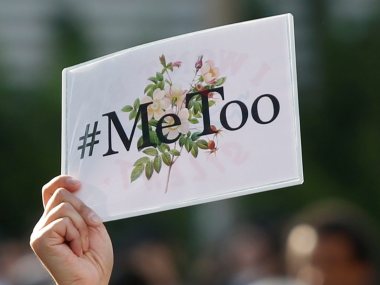#Me Too is something dicey very very, is it a propaganda against few successful celebrities or just few lines by lesser known celebrities.
Earlier I(the victim) was ashamed of it but now I’m telling it shamelessly rather tromping it out
Named and shamed by India’s growing #MeToo movement, those accused of sexual harassment and misconduct may well sail to safety because of the law. Identifying journalists, television actors and more, several women have blown the lid off old cases of sexual harassment — some dating back to the early 1990s — involving scribes, actors, comedians, writers and a journalist-turned-politician.
The important question is to what extent these cases can be pursued and proved in a court of law. Under criminal law, the concept of limitation or a time bar applies in a very restricted manner and never in cases of registering a complaint or first information report (FIR). An offence may have been committed several years ago, but the aggrieved can always register an FIR or complaint. There is no time bar under Sections 154, 155 and 156 of the Code of Criminal Procedure (CrPC) for registering an FIR, however old the offence may be.
Time bar is mentioned only in Section 468 of the CrPC, which mandates that no court shall take cognisance of an offence punishable up to three years of imprisonment after the expiry of limitation period. The time bar varies with the length of imprisonment prescribed for any offence.

Section 468 has two important elements:
First, it prohibits the court from taking cognisance of an offence. The stage of taking cognisance under Section 190 of the CrPC arrives much after the registration of an FIR. The entire process of a criminal trial starts from the stage of registration of an FIR followed by investigation. If the police finds sufficient evidence and materials against the accused during the investigation, it files a chargesheet. In case of lack of any evidence, the police files a final report recommending the acquittal of the accused.
A chargesheet or final report can only be filed after the judicial magistrate takes cognisance of the same. Taking cognisance is a discretionary power for which application of judicial mind by the magistrate is essential. Once the magistrate takes cognisance of a chargesheet, the case is committed to a relevant court and trial begins in that court with framing of charges. Section 468, however, prohibits the cognisance — taking power of the court in certain cases if they are reported after expiry of the limitation period. But the prior stages of registration of the FIR and investigation are still allowed even in respect of such offences as mentioned in the section. It’s only that the trial of such offences cannot proceed in view of the time bar.
In the landmark Lalita Kumari case, the Supreme Court held that the registration of an FIR is mandatory under Section 154 of the CrPc if the information discloses commission of a cognisable offence — in which the police does not require a warrant to arrest the accused — and no preliminary inquiry is permissible. If the information received does not disclose a cognisable offence but necessitates an inquiry, the same may be conducted only to ascertain whether any cognisable offence is disclosed or not.
Interestingly, Sections 354 A, C and D prescribe imprisonment of one to three years for first-time offenders but categorises them as “cognisable” offences at the same time. With the apex court verdict making registration of FIR mandatory in cases of cognisable offences, legally there is no bar on victims of sexual harassment from lodging an FIR against the accused irrespective of the time when the offence was committed.
Another hurdle in starting a trial is that Sections 354A, 354C and 354D were introduced via an amendment in 2013 following the Jyoti Singh gangrape case. Many of the acts included as sexual harassment under Section 354A and voyeurism and stalking under Sections 354C and 354D respectively were not treated as offences under the IPC before the amendment.
Therefore, prosecution for any act committed before 2013 which was not an offence earlier could be prohibited under the mandate of Article 20(1), which states that no one can be punished for an act that was not punishable when the said act took place. Effectively, it means that criminal law amendments which prescribe a heavier punishment for an existing offence or introduce new categories of offences which affects the substantial rights of an accused cannot have retrospective effect and will only apply prospectively.
Since acts considered to be sexual harassment now were not an offence back in the early 2000s and 1990s, in my view, persons accused of such acts cannot be prosecuted now.




